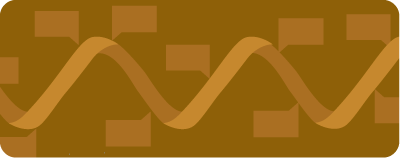A Outubro chega à edição 27 levando em diante a sua proposta de ampliação temática e posicionamento no debate internacional de ideias. Continuar lendo
Entrevista com Benno Teschke: repensando as relações internacionais
Repensando as Relações Internacionais: uma entrevista com Benno Teschke
Resumo: A entrevista a seguir foi feita por George Souvlis e Aurélie Andry com o pesquisador Benno Teschke, publicada na Viewpoint Magazine. Autor do livro The Myth of 1648: Class, Geopolitics and the Making of Modern International Relations (sem edição brasileira atualmente), Teschke inovou o campo das Relações Internacionais propondo uma interpretação marxista que dialogasse com o chamado “Marxismo Político”, concentrando-se nos agentes responsáveis pela formação da política internacional europeia ao longo dos séculos. Nessa entrevista, além de discutir sua abordagem teórica, o autor também analisa sua trajetória intelectual, as formas de compreender as relações internacionais no capitalismo e também faz algumas observações sobre o Marxismo Político, as apropriações sobre Carl Schmitt e o futuro da União Europeia.
Palavras-chave: 1. Relações Internacionais; 2. Marxismo Político; 3. Carl Schmitt.
Rethinking International Relations: an Interview with Benno Teschke
Abstract: George Souvlis and Aurélie Andry conducted the following interview with researcher Benno Teschke that was published in Viewpoint Magazine. Teschke is the author of The Myth of 1648: Class, Geopolitics and the Making of Modern International Relations, a groundbreaking work in the field of International Relations, conceiving a Marxist approach in an open dialogue with the so-called “Political Marxism”, focusing in the agents responsible for the making of foreign policy in Europe over the centuries. In this interview, besides discussing his theoretical approach, he also talked about his own intellectual trajectory, the ways of understanding International Relations in capitalism and made a few observations about Political Marxism, Carl Schmitt’s appropriation, and the future of the European Union.
Keywords: 1. International Relations; 2. Political Marxism; 3. Carl Schmitt.
Marxismo e antirracismo: repensando a política da diferença
Marxismo e antirracismo: repensando a política da diferença
Resumo: Este artigo sugere que a divisão entre marxismo e teoria antirracista colocada pela política da diferença precisa ser reconsiderada. É central para esse argumento o reconhecimento de uma certa política da “diferença” existente no trabalho de Karl Marx. A noção de diferença como se desenvolveu nos debates contemporâneos não foi uma categoria empregada por Marx. Apesar disso, o artigo mostra como diferença pode ser entendida, para se referir a várias formas de relações sociais conflituosas que ocorrem dentro da totalidade da sociedade capitalista. Para tal, tenta alargar o espectro de formas de conflito que estão em relações dialéticas e contraditórias dentro e através dessa totalidade e, assim, explicar as relações complexas e variáveis entre racismo e capitalismo.
Palavras-chave: 1. Racismo; 2. Marxismo; 3. Capitalismo.
Marxism and Anti-racism: rethinking politics of difference.
Abstract: This paper suggests that the division between Marxism and anti-racist theory, as defended by the politics of difference, must be reconsidered. It is central for this argument the acknowledgement that certain politics of “difference” already existed in Karl Marx’s work. The notion of difference, as it was developed in contemporary debates, was not a category used by Marx. However, this paper shows us how difference can be understood as a way to reflect about the many ways in which conflictual social relations occur inside of the totality of capitalist society. For such purpose, it intends to broad the specter of forms of conflict who are in dialectical relations inside and beyond this totality and, therefore, it explains complex relations and variables between racism and capitalism.
Keywords: 1. Racism; 2. Marxism; 3. Capitalism.
Novos movimentos sociais ou a fratura das lutas de classe? Uma crítica a Alain Touraine
Novos movimentos sociais ou a fratura das lutas de classe? Uma crítica a Alain Touraine
Resumo: O presente ensaio debate a fundamentação da teoria dos novos movimentos sociais a partir da vertente francesa da sociologia da ação de Alain Touraine. Tendo em vista os desdobramentos sociais e políticos ocorridos no final dos anos 1960, sobretudo com a emergência do Maio de 1968 na França, a elaboração teórica de Touraine se baseou no princípio da passagem da sociedade industrial para a sociedade pós-industrial, para atualizar as concepções das lutas sociais. Porém, em uma análise aprofundada dos pressupostos epistemológicos e teóricos utilizados pelo sociólogo francês, percebe-se que há um deslocamento das lutas de classe para as lutas por identidade, tomando como base o movimento estudantil. A crítica aqui apresentada procura enfatizar os limites dessa proposta, observando como ela se articula com a noção de fim da centralidade do trabalho.
Palavras-chave: 1. Sociedade pós-industrial; 2. Movimento estudantil; 3. Sociologia dos movimentos sociais.
New social movements or the fracture of class analysis? A critique to Alain Touraine
Abstract: This article debated the fundamentals of the new social movements’ theory, based on Alain Touraine’s French version of sociology of action. Given the social and political developments in the end of the 1960s, especially May 68 in France, Touraine’s theoretical framework relied on the principle of transition from an industrial society to a post-industrial society, in order to update the conceptions of social struggles. However, in a deeper analysis of the epistemological and theoretical assumptions utilized by the French sociologist, one realizes that there is a shift from class struggles to identity struggles, taking as a reference the student movement. This critique aimed to emphasize the limits of such a proposal, by observing how it is articulated with the notion of the end of the centrality of labor.
Keywords: 1. Post-industrial society; 2. Student movement; 3. Sociology of the social movements.
Os impasses do populismo no marxismo latino-americano
Os impasses do populismo no marxismo latino-americano
Resumo: este artigo procura discutir os principais impasses teórico-metodológicos em torno do debate sobre o “populismo” em algumas obras do marxismo latino-americano. Para tanto, discutirei o problema da relação entre as categorias de “classe” e “povo”, confrontando duas abordagens alternativas: uma que denominarei como “histórico-estrutural”, ou ainda como “teoria do populismo”, e outra, calcada na análise do discurso. Por fim, concluirei defendendo que o populismo deve ser pensado, menos como um conceito ou chave explicativa, do que como um problema que revela as dificuldades dos marxistas de lidar com as formas concretas de expressão dos subalternos na vida política do subcontinente.
Palavras-chave: 1. Marxismo; 2. Populismo; 3. América Latina.
The stalemates of populism in Latin American Marxism
Abstract: This article aimed at discussing the theoretical and methodological shortcomings around the debate on populism in some Latin American Marxist Works. For this, it was addressed the issue of the relationship between the categories of “class” and “people”, by comparing two alternative approaches: the first one that was called “historical-structural”, or else as “populism theory”, and the second one was based on discourse analysis. As a conclusion, it was stated that populism, rather than a concept or an explicative key, should be thought as an issue that reveals the difficulties Marxists face when dealing with the concrete forms of participation of the subaltern in the subcontinent’s political life.
Keywords: 1. Marxism; 2. Populism; 3. Latin America.
Marx e a América Latina? Uma crítica à tese de José Aricó
Marx e a América Latina? Uma crítica à tese de José Aricó
Resumo: Este artigo engaja-se em uma polêmica acerca dos escritos de Marx sobre o mercado mundial. Mais especificamente, fazemos frente às teses de Aricó a respeito do lugar que a América Latina ocupa nas reflexões marxianas. Para Aricó, o volume relativamente pequeno de textos de Marx sobre a América Latina revelaria posições teóricas do autor alemão. Sua concepção de mundo seria incapaz de conceber a forma necessariamente desigual do desenvolvimento do capitalismo em diferentes contextos sócio-históricos, assim como a necessária desigualdade no desenvolvimento dos complexos que o conformam. Assim, apresentamos criticamente as hipóteses aventadas por Aricó para a sua pergunta e esboçamos uma resposta alternativa para um ponto central de sua crítica: a relação entre as relações econômicas capitalistas e o Estado.
Palavras chave: 1. José Aricó; 2. Karl Marx; 3. América Latina.
Marx and Latin America? A critique to José Aricó’s thesis
Abstract: This paper engaged in a debate about Marx’s writings on the world market. More specifically, we stand against Aricó’s thesis on the role of Latin America in Marx’s reflections. According to Aricó, the relatively small volume of Marx’s texts about Latin America reveals his theoretical positions. His understanding of the world would not be able to conceive the necessary unevenness of historical development in different socio-historical contexts, as much as the necessary unevenness in the development of its constituting complexes. Thus, we critically present Aricó’s hypotheses to answer to his question and develop an alternative answer for a central argument of his critique: the relation between capitalist economic relations and the State.
Keywords: 1. Karl Marx; 2. José Aricó; 3 . Latin America.
O campo e a guerrilha: considerações do movimento trotskista após a revolução cubana
O campo e a guerrilha: o movimento trotskista e a revolução cubana
Resumo: O processo revolucionário cubano, que culminou na tomada do poder em 1959, promoveu questionamentos teóricos e práticos para aqueles que se posicionavam no espectro político das esquerdas. Para o movimento trotskista, alguns desses questionamentos poderiam contribuir para a confirmação de parte de suas teses, enquanto outros deveriam ser reinterpretados para as especificidades latino-americanas. Dentre todas as considerações advindas da Revolução Cubana, esse artigo priorizará o papel do campo e da guerrilha como elementos que, embora não fossem novos para análises revolucionárias, passaram a ter prioridade em detrimento de outros.
Palavras-chave: 1. Revolução Cubana; 2. Movimento trotskista; 3. Guerrilha.
The countryside and the guerrilla: the Trotskyist movement and the Cuban revolution
Abstract: The Cuban revolutionary process, which culminated in the seizure of power in 1959, has fostered theoretical and practical questionings for those who were situated in the political left spectrum. For the Trotskyist movement, some of these questionings could contribute to the confirmation of their theses, while others should be reinterpreted according to the Latin American specificities. Of all the considerations arising from the Cuban Revolution, this article has prioritized the role of the countryside and the guerrillas as elements that, although not new for revolutionary analysis, have become a priority over other ones.
Keywords: 1. Cuban revolution; 2. Trotskyst movement; 3. Guerrilla.
O movimento trotskista internacional e as revoluções do pós-guerra
O movimento trotskista internacional e as revoluções do pós-guerra
Resumo: O tema deste artigo é a história do movimento trotskista internacional nas primeiras décadas após a Segunda Guerra Mundial (1944-63). A partir da análise de documentos e artigos publicados ao longo desse período por seus diferentes setores, pôde-se mapear uma série de (re)leituras (explícitas ou não) do arcabouço teórico-analítico original desse movimento, realizadas com vistas a melhor compreender as diferentes revoluções que então ocorriam e a delinear programas de intervenção para elas. Tais (re)leituras geraram intensos conflitos, sendo um elemento importante da sua crescente fragmentação. Assim, ainda que a história desse movimento no pós-guerra não se limite a tais (re)leituras, elas são fundamentais para se compreender de forma mais apurada a sua atual configuração.
Palavras-chave: 1. Quarta Internacional; 2. Trotskismo; 3. Revoluções do pós-guerra.
The international Trotskyist movement and the post-World War II revolutions
Abstract: The theme of this article is the history of the international Trotskyist movement in the first decades following the end of World War II (1944-63). By means of the analysis of documents and articles published throughout this period by its different sectors it was possible to detect a number of (re)readings (explicit or not) of the original theoretical and analytical framework of this movement, accomplished carried out with the aim of better understanding the different revolutions then occurring and to formulate intervention programs for them. Those (re)readings have generated intense conflicts, being an important element of its increasing fragmentation. Thus, although the history of this movement in the postwar period is not limited to those conflicts, they are fundamental for a better understanding of its current configuration.
Keywords: 1. Fourth International; 2. Trotskyism; 3. Postwar revolutions.
Estratégia e tática: o trotskismo norte-americano e a revolução europeia
Estratégia e tática: o trotskismo norte-americano e a revolução europeia
Resumo: O seguinte artigo analisa os debates do trotskismo norte-americano nos anos que se seguiram após a invasão da Itália pelos Aliados na Segunda Guerra Mundial. A posição da minoria, questionando as análises dos dirigentes, procurava estabelecer uma reflexão sobre como Estados Unidos e União Soviética estavam se preparando para a derrocada do fascismo e, por fim, sobre qual o papel dos trotskistas na luta em prol da revolução mundial.
Palavras-chave: 1. Trotskismo; 2. Itália fascista; 3. Estados Unidos.
Strategy and tactics: the American Trotskyism and the European revolution
Abstract: The following paper analyzes the debates of north-american Trotskyism in the years after Allies in World War II occupied Italy. The position held by the minority, questioning the analyzes made by the leadership, intended to establish a consideration about how United States and Soviet Union were preparing themselves for the final blow on Fascism and, in the end, about what would be the role of Trotskyists in the struggle for the world revolution.
Keywords: 1. Trotskism; 2. Fascist Italy; 3. United States of America.




